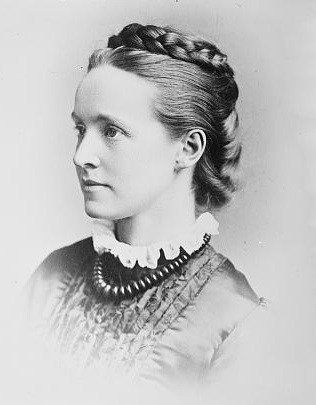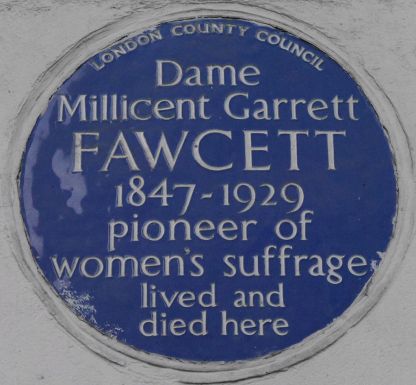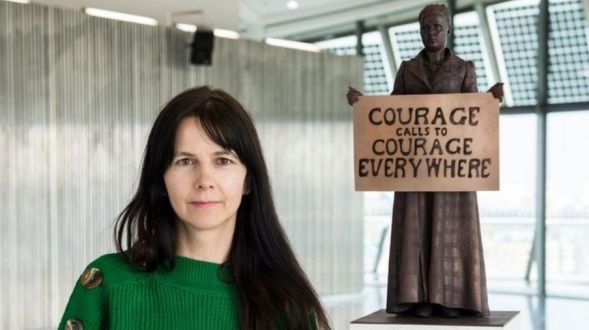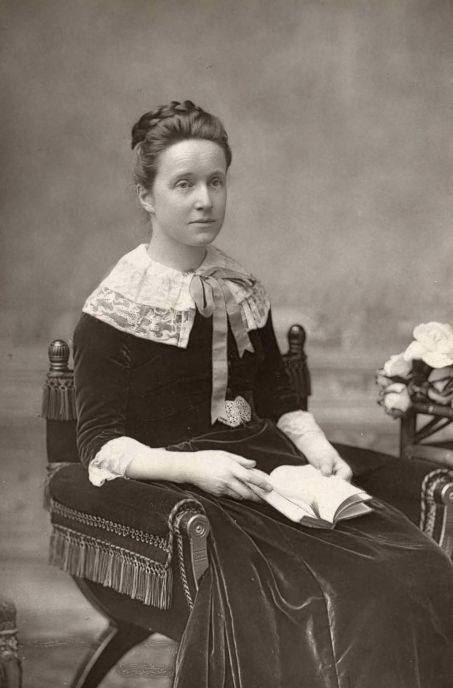This week has been the centenary of the Representation of the People Act, the bill which finally gave women the vote on 6th February 1918. Even then, only women over the age of 30 who met a property qualification were able to vote, which enfranchised only 40 per cent of the total population of women in the UK. It was not until the Equal Franchise Act of 1928 that women over 21 were able to vote and women finally achieved the same voting rights as men. This act increased the number of women eligible to vote to 15 million.

Millicent Fawcett
One of the heroes of the suffrage movement was Dame Millicent Fawcett. Fawcett was born in 1847, and developed an interest in women’s rights at a young age. Her sister, Elizabeth Garrett Anderson, was the first female doctor in Britain. In 1866, at the age of 19, Millicent became the secretary of the London Society for Women’s Suffrage. She dedicated her life to campaigning for equal rights for women. Fawcett was a suffragist, not a suffragette. She distanced herself from the militant and sometimes violent activities of the suffragettes, preferring instead to work within the law.

Suffragettes Annie Kenney and Christabel Pankhurst
Fawcett spoke at her first public pro-suffrage meeting in 1869, and took over as the leader of the National Union of Women’s Suffrage Societies (NUWSS) in 1890. She held this position until 1919, a year after the Representation of the People Act finally achieved the aims she had been campaigning for over the past 53 years.
When the Equal Franchise Act of 1928 was to be signed into law, the 81-year-old campaigner, now a Dame Grand Cross of the Order of the British Empire, wanted to witness the historic moment. She made her way to the House of Lords in plenty of time for the ceremony, which was due to start at 6.30pm on 3rd July. Unfortunately, the House of Lords had completed their other business more quickly than anticipated, and brought the signing ceremony forward to six o’clock. After 62 years of campaigning, Dame Millicent arrived less than a minute too late to see the law conferring equal voting rights to women given royal assent.

Fawcett died the following August, in 1929, aged 82. She was born into an era where women were seen and not heard, where they had few rights, and where they were widely believed to be “the weaker sex.” Over her lifetime, the rights of women were transformed; by the time of her death women had the same voting rights as men. Little wonder, then, that Fawcett won the vote for “most influential woman” of the last 100 years run this week by BBC Radio 4, or that she has been chosen as the subject a commemorative statue to be erected in Parliament Square.

Artist Gillian Wearing with a model of the Fawcett statue
It is fitting that Fawcett continues to break new ground for women, even today: hers is the first statue of a woman to be erected in Parliament Square. The plinth will feature the names of 59 women and men who fought for women’s suffrage; it will be unveiled in April. In the statue, Fawcett holds a placard with a line from a speech she gave after the death of suffragette Emily Wilding Davison at the 1913 Epsom Derby: “courage calls to courage everywhere.”
Fawcett’s work remains incomplete, however: there are still significant gender inequalities at work in our society today. That is why Churchill Academy & Sixth Form has signed up to the Gender Equality Charter, with the aim of challenging and correcting gender imbalances wherever we find them. Click here to find out more.

Millicent Fawcett in 1870
If you want to learn more about the campaign for women’s right to vote and its impact on women’s rights and equality to the present day, you can join me in signing up for a free five-week online course (MOOC) called Beyond the Ballot: Women’s Rights and Suffrage from 1866 to Today run by Royal Holloway and the UK Parliament.
Excellent post. Do you think the new science block might be named after one of the many overlooked female scientist? Hope so!
LikeLike
Yes! We’re currently running a competition where students are researching female scientists. After half term they will present their cases as to which one the block should be named after. I will write it up for a future blog!
LikeLiked by 1 person